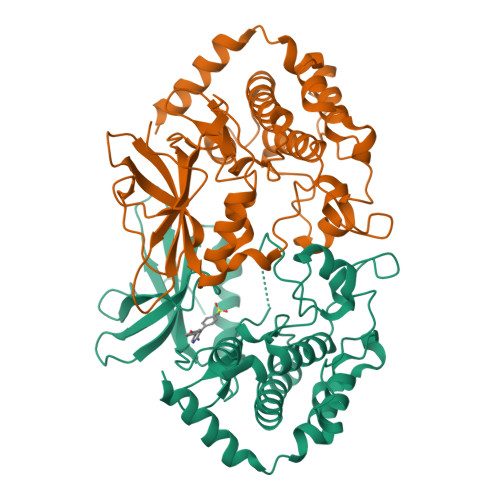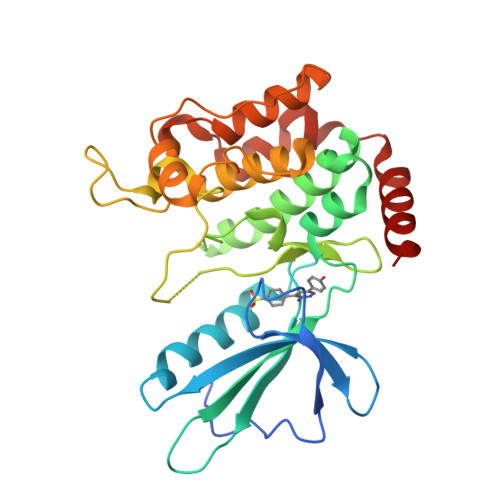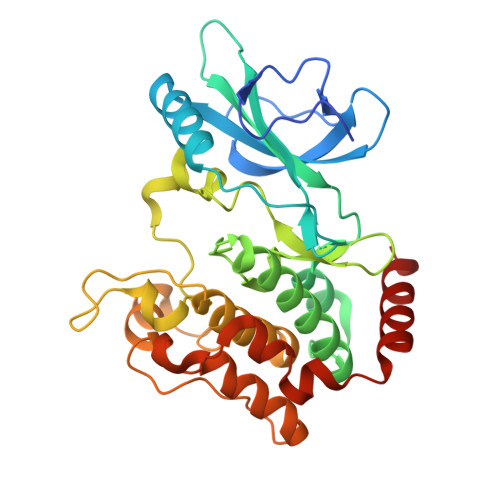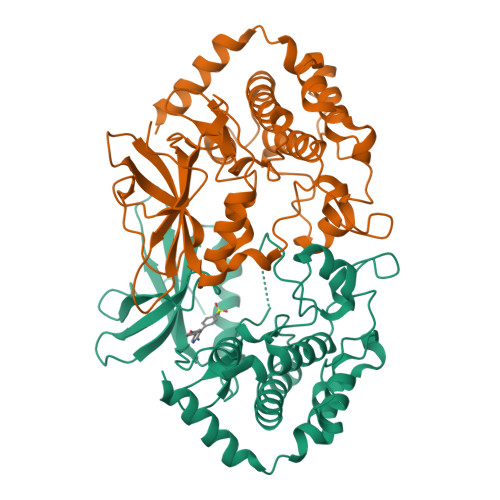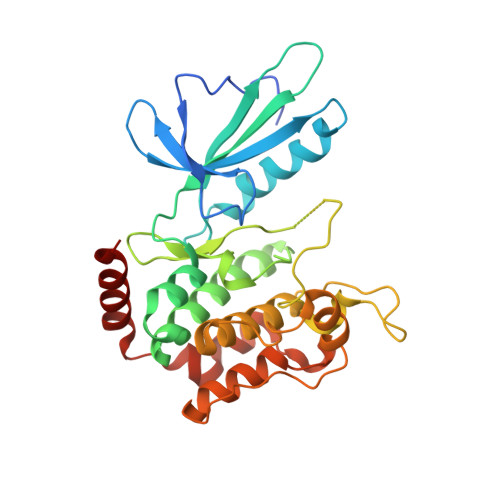Discovery of an in Vivo Tool to Establish Proof-of-Concept for MAP4K4-Based Antidiabetic Treatment.
Ammirati, M., Bagley, S.W., Bhattacharya, S.K., Buckbinder, L., Carlo, A.A., Conrad, R., Cortes, C., Dow, R.L., Dowling, M.S., El-Kattan, A., Ford, K., Guimaraes, C.R., Hepworth, D., Jiao, W., LaPerle, J., Liu, S., Londregan, A., Loria, P.M., Mathiowetz, A.M., Munchhof, M., Orr, S.T., Petersen, D.N., Price, D.A., Skoura, A., Smith, A.C., Wang, J.(2015) ACS Med Chem Lett 6: 1128-1133
- PubMed: 26617966
- DOI: https://doi.org/10.1021/acsmedchemlett.5b00215
- Primary Citation of Related Structures:
5DI1 - PubMed Abstract:
Recent studies in adipose tissue, pancreas, muscle, and macrophages suggest that MAP4K4, a serine/threonine protein kinase may be a viable target for antidiabetic drugs. As part of the evaluation of MAP4K4 as a novel antidiabetic target, a tool compound, 16 (PF-6260933) and a lead 17 possessing excellent kinome selectivity and suitable properties were delivered to establish proof of concept in vivo. The medicinal chemistry effort that led to the discovery of these lead compounds is described herein together with in vivo pharmacokinetic properties and activity in a model of insulin resistance.
Organizational Affiliation:
Worldwide Medicinal Chemistry, Cardiovascular and Metabolic Research Unit, External Research Solutions, Primary Pharmacology Group, and Pharmacokinetics, Dynamics and Metabolism, Pfizer Worldwide Research & Development , 610 Main Street, Cambridge, Massachusetts 02139, United States.








